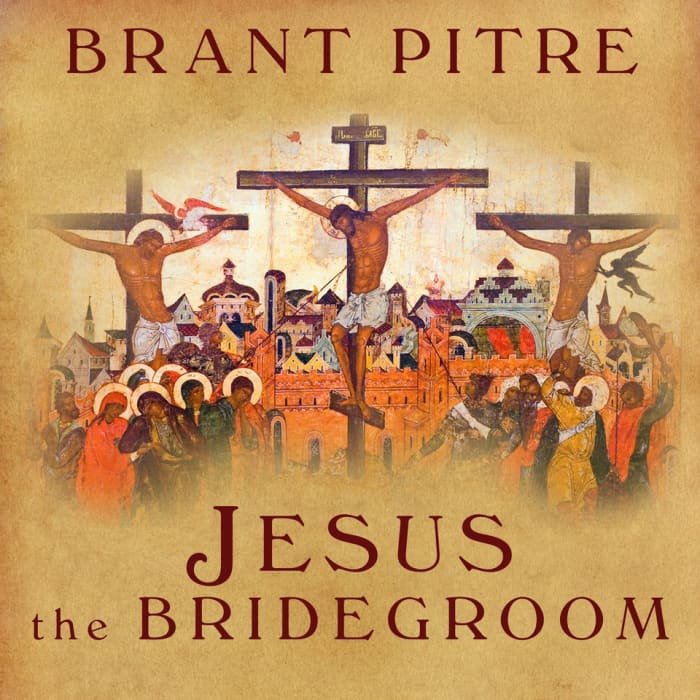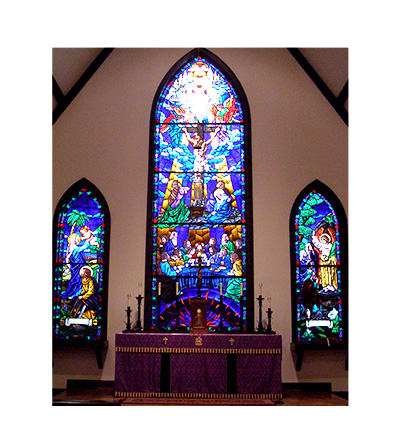Pilate took Jesus and scourged him – softening our hearts: SS class 3 31 19

Pilate took Jesus and scourged him
Jhn 19:1 – Then Pilate therefore took Jesus, and scourged him. – surely hoping to appease them, finally giving in to their wants and desires. How often have all us “given into wants and desires of others although we know better” and how often do we regret the outcome. Regardless, “And the soldiers led Him away into the palace, and they call the whole band” ( Mar 15:16 ) –the whole body of the military stationed there–to take part in the mocking and the corruptible coronation now to be enacted.
Jhn 19:2 – And the soldiers platted a crown of thorns, and put it on his head, and they put on him a purple robe, (in mockery of the imperial purple) but first Matthew tells us of them “stripping him” (Mat 27:28) of His own outer garment. This robe may have even been the “gorgeous” one in which Herod arrayed and sent Him back to Pilate but we know not for sure (Luk 23:11).
“And they put a reed into His right hand” (Mat 27:29) –in mockery of the regal scepter. As a final insult “they bowed the knee before Him” (Mat 27:29). Is it not so human to want to have the last word – like an emphasis mark – having the last word – they so kneel and surely pride raged within with the last parting shot.
Jhn 19:3 – And said, Hail, King of the Jews! and they smote him with their hands.
Heaping contempt upon him, and the Jews, as they pay homage in form used on approaching emperors. “And they spit upon Him, and took the reed and smote Him on the head” (Mat 27:30).
Jhn 19:4 – Pilate therefore went forth again, and saith unto them, Behold, I bring him forth to you, that ye may know that I find no fault in him. Pilate, knowing there were no good choices. . . went forth again, and saith. . . Behold, I am bringing, that is, going to bring him forth to you. That ye may know I find no fault in him — and, by scourging Him and allowing the soldiers to make sport of abusing Him, have gone as far to meet your great anger and rage as can be expected from a judge.
Jhn 19:5 – Then came Jesus forth, wearing the crown of thorns, and the purple robe. And Pilate saith unto them, Behold the man! There is no reason to think that contempt was dictated by his words. There was clearly a struggle within this wretched man, for whatever reasons. Not only was he reluctant to surrender to the uproar and clamor for an innocent man, but one would think that he may have had a feeling of anxiety about the mysterious claims of Jesus. The object of his exclamation “Behold the man” seems to have been said to move their pity, if there was any to be found. However, be whatever his intent, those three words have been eagerly appropriated by all Christendom, and enshrined forever in its heart as a sublime expression of its calm, giving complete admiration for its suffering Lord – Behold the man – indeed!.
Jhn 19:6 – When the chief priests therefore and officers saw him, they cried out, saying, Crucify him, crucify him. Pilate saith unto them, Take ye him, and crucify him: for I find no fault in him. It seems as if just the sight of him kindled their fiendish rage afresh…their own hatred seems to have gotten advantage of them as seems to occur when rage is unleashed…Crucify him, crucify him–(See Mar 15:14 ).
Pilate saith unto them, Take ye him, and crucify him; for I find no fault in him–as if this would relieve him of the responsibility of the deed, who, by surrendering Him, incurred it all! It seems that Pilate then, and we today, often give-in to the pressure of others. He and we seem to lack at times any fortitude of standing for what is right and against what is wrong. This action is contrary to what our Lord showed forth that night and is so evident within the world today.
Jhn 19:7 – The Jews answered him, We have a law, and by our law he ought to die, because he made himself the Son of God. Having their criminal charges come to nothing, they give up that point, and as Pilate was throwing the whole responsibility upon them, they retreat into their own Jewish law, by which, as claiming equality with God (see Jhn 5:18), He ought to die; insinuating that it was Pilate’s duty, even as civil governor, to protect their law from such insult. Two groups that despised one another, obviously could not even figure out who should do this cowardly deed.
Jhn 19:8 – When Pilate therefore heard that saying, he was the more afraid; Yes the name “SON OF GOD” startled Pilate, the lofty sense evidently attached to it by His Jewish accusers, and by the dialogue he had already held with Him, and there was the dream of his wife (Mat 27:19) when previously Pilate “was set down on the judgment seat, his wife sent unto him, saying, Have thou nothing to do with that just man: for I have suffered many things this day in a dream because of him” – – all these things working together in the breast of the man whose wretchedness would be revealed by his own actions.
Jhn 19:9 – And went again into the judgment hall, and saith unto Jesus, Whence art thou? But Jesus gave him no answer. Pilate was scared and wanted to know –beyond all doubt a question relating not to His mission but to His personal origin, but Jesus gave him no answer—it appears that Lord had had enough, yes, He had said enough; the time for answering such a question was past; the weak and wavering governor is already at the point of giving way to the mob outside.
Jhn 19:10 – Then saith Pilate unto him, Speakest thou not unto me? knowest thou not that I have power to crucify thee, and have power to release thee? –The “me” is the emphatic word in the question, as Pilate falls back upon the pride of office, which doubtless tended to blunt the workings of his conscience – for this was cruel times.
He continues to plead for help from Jesus: knowest thou not that I have power to crucify thee, and have power to release thee?—One would think Pilate said these words to work upon Jesus at once by fear and by hope. But, by his answer, Jesus answers the questions in Pilate mind although he did not realize – he had ears, but did not hear.
Jhn 19:11 – Jesus answered, Thou couldest have no power at all against me, except it were given thee from above: therefore he that delivered me unto thee hath the greater sin. –Jesus is saying rather, “shouldst” have no power at all against me–neither to crucify nor to release, nor to do anything whatever against Me. except it were–“unless it had been.” Or given thee from above–that is, “Thou thinkest too much of thy power, Pilate: against Me that power is none, save what is given thee by special divine appointment, for a special end.” therefore he that delivered me unto thee, the one you call Caiaphas, he only as representing the Jewish authorities as a body. hath the greater sin–as he is should have had more better opportunities and more knowledge of such matters.
Meditation thoughts and questions:
- Then Pilate therefore took Jesus, and scourged him. – surely hoping to appease them, finally giving in to their wants and desires. How often have all us “given into wants and desires of others although we know better” and how often do we regret the outcome. The crowd of a mob can often pressure others to do things that are contrary to the truth. Do I give into others too easily? In giving in to the desire of others, are we open to the sins of the crowd being cast upon us? Standing for what is true is not always easy…what are some ways of strengthening my ability to stand up for what is true and pure.
- “Behold the man” seems to have been said to move their pity. When we see others, rich or poor, attractive of not, healthy or sick, regardless of their status, do we see God with them…as part of His creation. How can we become more sensitive to the needs of others. What in my life hardens my heart and what can I do to be more Christ like in my dealings and feelings of others.
- Pilate was scared and wanted to know –beyond all doubt a question relating not to His mission but to His personal origin. Understanding who God is, the Father, Son, and Holy Ghost, must be the foundation of our faith. Peace and salvation is nice, but only possible because Jesus is the Son of God – thus God. How can my understanding of who Christ is be strengthened within my life. Are friends walking my journey of faith with me, or are hey hindrance?
Jhn 19:12 – And from thenceforth Pilate sought to release him: but the Jews cried out, saying, If thou let this man go, thou art not Caesar’s friend: whosoever maketh himself a king speaketh against Caesar.
But now Pilate seems confused: so from thenceforth—especially after this latest conversation, which seems to have filled him with awe, but at the same time redoubled his anxiety. So Pilate sought to release him—and to gain the mobs consent to it, for he could have done it at once on his authority. Often in life we come to a point to go this way or that way, and often we take the easiest way…which Pilate would do…he would never admit it, but he had a fear of the Jewish mob and the violence that they could bring.
Regardless, the Jews cried—sensing their advantage, they were not slow to take advantage and profit by their position.
If thou let this man go, thou art not Caesar’s friend,.
“This charge was equivalent to a threat of impeachment, which we know was much dreaded by such officers of the courts, especially Pilate. It also consummates the treachery and disgrace of the Jewish rulers, who were willing, for the purpose of destroying Jesus. Their hatred continues to outweigh any desire for justice…they were completely controlled by their blindness of any desire to do right…we can still see this blind allegiance in mob rule even today.
Jhn 19:13 – When Pilate therefore heard that saying, he brought Jesus forth, and sat down in the judgment seat in a place that is called the Pavement, but in the Hebrew, Gabbatha.
The easy way is taken as Pilate, after hearing the mob, he brought Jesus forth, as he sat down –“upon” the judgment seat–that he might pronounce sentence against the Prisoner, a penalty with which he disagreed but a penalty with which he would inflict upon “The Son of God” himself” as he gives in to their charge. And this was done in a place called the Pavement—which was a decorated flooring that had mosaics patterns, which was much loved by the Romans. In the Hebrew, Gabbatha—was an elevated podium. John uses this name perhaps in reference to past events in Israel’s history (Gibbethon and Gibeath)
Jhn 19:14 – And it was the preparation of the passover, and about the sixth hour: and he saith unto the Jews, Behold your King!
It was the preparation–that is, the day before the Jewish sabbath. and about the sixth hour–The reading here is most likely “the third hour”–or nine A.M.–which agrees best with the whole series of events, as well as with the other Evangelists. And Pilate says to the Jews,
Behold your King! Having now made up his mind to yield to them, he takes a sort of quiet revenge on them by this irony, which he knew would sting them. But this only reawakens their cry to despatch Jesus to his death.
Jhn 19:15 – But they cried out, Away with him, away with him, crucify him. Pilate saith unto them, Shall I crucify your King? The chief priests answered, We have no king but Caesar.
The chief priest instigating the mob now uses Pilate own position against him, as they shout take him away and crucify him for Caesar is now, all of sudden, admired as their leader – their King. The only justice for this mob is that –“Some of those who thus cried crucify him died miserably in rebellion against Caesar forty years afterwards. But this day the name of Caesar was well suited their present purpose”
Jhn 19:16 – Then delivered he him therefore unto them to be crucified. And they took Jesus, and led him away.
Matthew Henry: Pilate, to gratify the Jews’ malice, delivers Christ to be crucified. Willing to content the people, to do enough for them (so the word is), to settle them down that he might keep them quiet, so he released Barabbas unto them: Barabbas who was the scandal and plague of their nation then released and in his place, is Jesus delivered to be crucified, He whom was the glory and blessing of their nation is betrayed by His own people whom he had lead out of Egypt and now sacrificed at their hands. Though Pilate had scourged him before, hoping that this would content them, not designing to crucify him, yet he went forward to do just that. He who could persuade himself to chastise one that was innocent (Lu. 23:16), could by degrees persuade himself to crucify him. Evil often works in degrees until the consummation of a deal with Satan himself.
Christ was crucified, A bloody death, blood is the life (Gen. 9:4); and some say it connects the soul and body, so that the exhausting of the blood is the exhausting of the life itself. Christ laid down his life for us by the shedding of his blood, and as told in in Leviticus (Lev. 17:11), in every sacrifice of propitiation, special order was given for the pouring out of the blood.
It was a painful death; the pains were exquisite and acute, for death made its assaults upon the vitals by the exterior parts, which are quickest of sense. Christ died, as that he might feel himself die, because he was to be both the priest and the sacrifice; so that he might be active in dying; because he was to make his soul an offering for sin. Crucifixion, A most painful punishment: Christ would meet death in its greatest terror, and so conquer it.
It was a shameful death, the death of slaves, and the most dangerous criminals, so accounted among the Romans. The cross and the shame are put together. God having been injured in his honour by the sin of man, it is in his honour that Christ cures man from the disease of sin, not only by denying himself and divesting himself of the honours due to his divine nature, and for a time submitting to the greatest reproach, that human nature was capable of being loaded with. Yet this was not the worst.
It was a cursed death; thus branded by the Jewish law (Deu. 21:23); He that is hanged, is accursed of God, is under a particular mark of God’s displeasure. It was the death that Saul’s sons were put to, when the guilt of their father’ bloody house was to be expiated, 2 Sa. 21:6.
Jhn 19:17 – And he bearing his cross went forth into a place called the place of a skull, which is called in the Hebrew Golgotha:
Jesus bearing his cross–went forth; in Hebrews we are told Hbr 13:11-13, Jesus “without the camp”; “without the gate.” And upon arrival at the place, “they gave Him vinegar to drink mingled with gall (wine mingled with myrrh, Mar 15:23), and when He had tasted thereof, He would not drink” (Mat 27:34). This potion was to help one not to think or feel, and given to criminals just before execution, to deaden the sense of pain.
But our Lord would die with every faculty clear, and in full sensibility to all His sufferings.
It would be written (Keeble):
Thou wilt feel all, That Thou may’st pity all;
And rather would’st, Thou wrestle with strong pain than overcloud Thy soul in agony,
Or lose one glimpse of Heaven before the time,
O most entire and perfect Sacrifice, Renewed in every pulse.
Jhn 19:18 Where they crucified him, and two other with him, on either side one, and Jesus in the midst.
With malefactors (Lk:23:33), thieves (or robbers) on either side (Mat 27:38 & Mk 15:27) they crucified him and Jesus in the midst– to hold Him up as the worst of the three. But in this, as in many other of their doings, “the scripture was fulfilled, which saith (Isa 53:12), And he was numbered with the transgressors.” “Then said Jesus”–[“probably while being nailed to the CROSS,”] “FATHER, FORGIVE THEM, FOR THEY KNOW NOT WHAT THEY DO” (Luk 23:34) –and again the Scripture was fulfilled which said, “And He made intercession for the transgressors” (Isa 53:12 ), this also reaches deeper.
Meditation thoughts and questions:
- “They were completely controlled by their blindness of any desire to do right.” Blindness or darkness can be brought upon those who do not have deep roots of Faith. Are your roots of faith strong…does your faith guide your day? What can you do to strengthen your faith. Do you use the church as you should?
- “they gave Him vinegar to drink mingled with gall (wine mingled with myrrh, Mar 15:23), and when He had tasted thereof, He would not drink” (Mat 27:34). This potion was to help one not to think or feel.” Do we need drugs, alcohol, or other substances to ease our pain? Are we dependent on them? Is all pain bad? How can my faith assist in battling pain and depression? It is important that we follow the directions of our doctors, but we must also know their views of pain and drugs.
- “FATHER, FORGIVE THEM, FOR THEY KNOW NOT WHAT THEY DO” (Luk 23:34) As Christians, do we know what we are expected to do? Do we accept as valid the words of scripture or do we take some words and leave others. Would Bible Study and Sunday school help me to more fully understand scripture…do you participate in these programs – why or why not? As a Christian, do we have the option of “not knowing what we do?”






